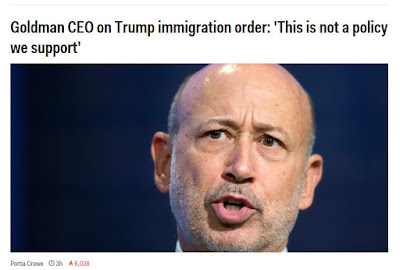My
last article got me thinking about German politics again and had me mulling on the question, 'What went wrong with the NPD?'.
The decline of the NPD, and the rise of the AfD, touches a sore spot with me: I've always liked and admired the NPD, and viewed it as the model we Australian nationalists ought to follow; at the same time, I now acknowledge that the NPD approach hasn't generated much in the way of success. Is it the case, then, that 'neofascists' and 'Neo-Nazis' won't ever do well at elections (at least in Western Europe - let's leave out the examples of Jobbik and Golden Dawn)?
Should the NPD be considered a 'Neo-Nazi' party? My answer is: absolutely. I could reel off a list of the similarities between the NSDAP and the NPD. But I can detect some crucial differences:
1) No charismatic leader. The NPD has been led by men who may be ideologically sound but are not as brilliant as Germany's former Führer: Voigt, Apfel, Pastörs... Which is strange, considering that National Socialism is structured around the 'leadership principle' and what Hitler called 'personality' (that is, the cult of personality around great men). And not just National Socialism: all of the fascism of the 1920s and 1930s revolves around this notion of the importance of charismatic and attractive leadership. Were some fascist from that period to time-travel to the present, the first thing he'd ask of the NPD is, 'Who's your leader? Is he smart? Do people respect him? Does he deliver a good speech? Does he look good in photographs and newsreels? Is he well-dressed? Do women like him?'...
The NPD leadership don't have well-defined media personalities: simply put, no-one knows them nor can they remember, after seeing them, who they are. This is not true of the leaders of the populist parties - men and women such as Farage, Le Pen, Wilders, Åkesson - who are memorable, and well-presented. Compared to them Voigt looks scruffy and ordinary; he reminds everyone of their father. What a contrast Frauke Petry of the AfD presents. It's a great advantage when your party is headed by such a well-dressed, and distinctive, woman.
Oddly enough, the populists - with their understanding of the visuals of politics and politicians - stand closer to Hitler and the NSDAP than the NPD.
2) No uniforms. The NPD has badges, banners, flags, drums, bugles, just like the NSDAP, and does marches and rallies just like the NSDAP. But it doesn't do salutes, doesn't wear uniforms and doesn't structure itself as a paramilitary organisation. It can't do those things because of the law. One might say that this is a good thing, because very few groups can wear a fascist-type uniform with panache and style, and besides which, wearing uniforms - LARPing, as Colin Liddell, a foe of National Socialism, contemptuously calls it - distracts from the doctrine, the politics.
But the fascist doctrine is embodied in the uniform, and the salutes, and the paramilitary ranks. Men in civilian clothes, in business suits, won't bring about Yockey's 'Age of Authority' (that is, age of fascism).
I sometimes ask myself what would happen in Germany were the uniform ban, and the salute ban, lifted. The German nationalists would go back to wearing uniforms in a thrice. Perhaps they wouldn't look good; perhaps the Germans don't have the fashion sense that they did seventy years ago. As one British journalist put it, 'WWII was the last time the Germans dressed well'. But maybe the NPD would manage to pull it off - and enjoy tremendous success.
3) The constitutional order. The trinity of nation, state and party lay at the heart of the National Socialist doctrine, and the Führer - with his special (one might say mystical?) - insight into the minds and hearts of the German people serve to mediate the three. This is the rationalisation, the justification, for the constitutional arrangements adopted by Germany in the years from 1933 to 1945 - arrangements which differ radically from today's and which give National Socialism its character.
We know that the NPD don't think much of the present political system and the
Grundgesetz, or Basic Law, imposed on Germany by the Allies and their collaborators: the NPD can't attack the
Bundesrepublik openly, but it's safe to assume that their feelings towards it are negative. The question is, would they replace it with the old legal, constitutional system which existed before Germany's defeat - with the essentials of that system at least? Would the offices of the chancellor and president be combined into one; would all other political parties be abolished; would the parliaments of the
Länder (states of Germany) be abolished; would Germany become a state with parliamentary elections for candidates one party only... Enquiring minds want to know.
I myself favour Germany returning to the old ways, simply because the system as it stands now doesn't work anymore - if it ever did - and can't be saved. (Or more accurately, it won't be saved: to amend the Basic Law, a majority of votes from the
Länder are required, and such votes for an amendment - to deal with the Merkel problem - won't be happening any time soon).
Three alternatives exist: Germany can stay where it is, Germany can turn back to the old days of the NSDAP, or Germany can turn back to the old days of the KPD and SED. (Perhaps a fourth possibility exists: Germany can become an Islamic state under shariah law).
I much prefer the second option to the others. German nationalist intellectuals have to make the case for it. With his brilliant analyses of the Weimar constitution in the 1920s, Carl Schmitt exposed its flaws for all to see, and helped - inadvertently - to weaken Germany's faith in Weimar. Perhaps some modern nationalist intellectual could perform the same service with the Basic Law and the
Bundesrepublik.




































